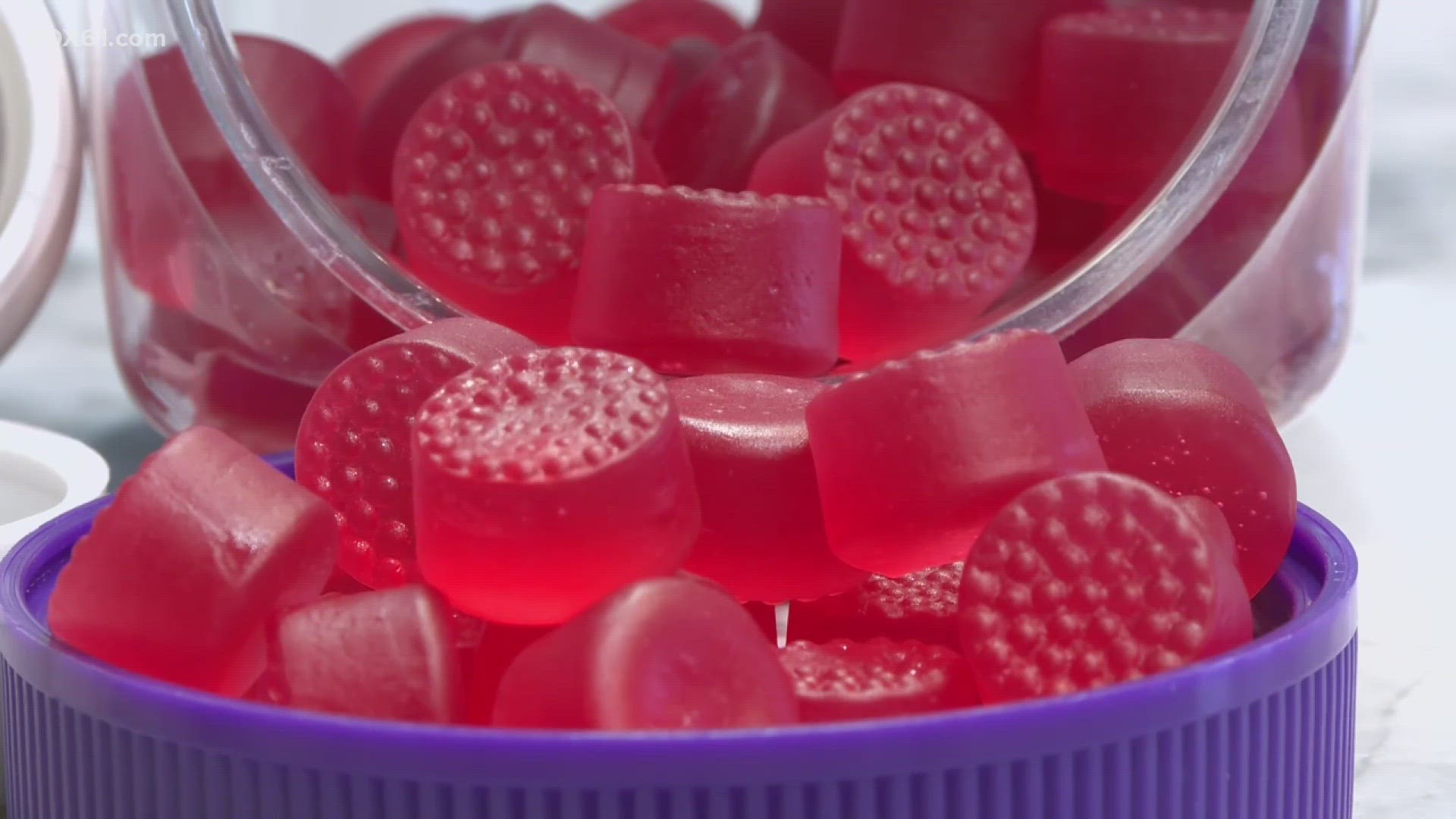WASHINGTON — Melatonin gummies are a common over-the-counter sleep aid that use a natural chemical to help people fall asleep faster and stay asleep for longer. But a new study published Tuesday has found that for some products, what you see on the label isn't always what you get.
Researchers tested 25 gummy products that labeled themselves as having melatonin, according to a paper published in the medical journal JAMA. The gummies, labeled as dietary supplements or food, aren't regulated as strictly as other items by the U.S. Food and Drug Administration.
The actual contents of the gummies ranged from 74% to 347% of the melatonin dose listed on the label, according to researchers. They found that 22 of the 25 products appeared to be inaccurately labeled and only three had a quantity of melatonin that was at or around what they declared on the packaging.
The inaccurate dosage could have serious implications, especially for children. Gummies are more likely to be accidentally or purposefully ingested by children, and researchers say melatonin-related illnesses have become a larger problem in recent years.
The paper outlined how U.S. Poison Control Center have dealt with a massive uptick in melatonin-related pediatric calls over the past decade. Melatonin has been linked to nearly 28,000 emergency or clinic visits, around 4,000 hospitalizations and two deaths from 2012 to 2021, according to researchers at the CDC.
Melatonin's side effects include drowsiness, headaches, agitation and potentially harmful interactions with other medications, according to the National Institute of Health.
Some of the products also listed CBD in their ingredients.
CBD is the non-addictive active ingredient in marijuana and hemp, and is unable to produce a high like the other active ingredient, THC. Its use has skyrocketed in recent years as regulations around marijuana or hemp-based products have loosened in the U.S.
Researchers found levels of CBD that were higher than those listed on the packaging. According to the researchers, five of the tested products declared CBD as an ingredient and found that in all five, the quantity was higher than what was listed, from 104% to 118%.
According to the researchers, one product didn't have any detectable levels of melatonin despite its labeling, instead containing 31.3 mg of CBD — the highest found in the study.
Technically, it's illegal to add CBD to food or to market it as a dietary supplement, according to the FDA.
However, the rule banning CBD-infused supplements is largely unenforced, with a growing number of CBD products being sold for a variety of purposes on store shelves. The market cap for the growing CBD industry worldwide is just shy of $5 billion, according to Vanguard Market Research.
The presence of CBD in the melatonin gummies may be especially alarming to parents, who could be giving them to their children.
The study pointed to research indicating that a significant number of children use melatonin gummies to sleep. According to a research note cited by the study's authors, about 1.3% of children in the U.S. use melatonin products like gummies before bed.
However, the FDA says there is limited data on CBD's effectiveness overall, and is only approved by the agency in one case: to treat a handful of rare and debilitating seizure disorders.
While the study released Tuesday does hedge itself by acknowledging that the sample size was limited, only testing 1 sample of each brand, it does back up previous research in Canada that found similar problems with mislabeled melatonin gummies.
The study's authors said that despite the uncertainty, healthcare providers should warn parents that if they give their children melatonin gummies, the kids may be ingesting "unpredictable quantities of melatonin and CBD."

